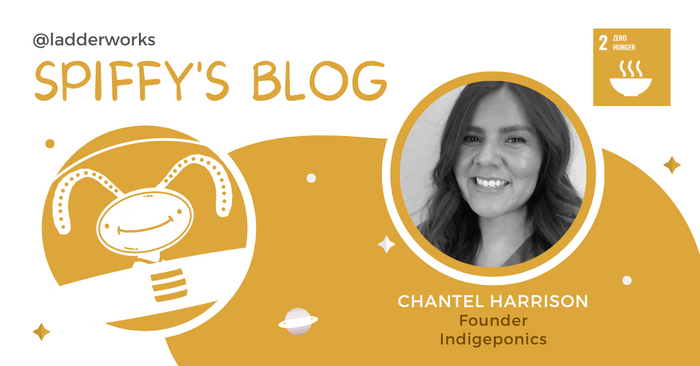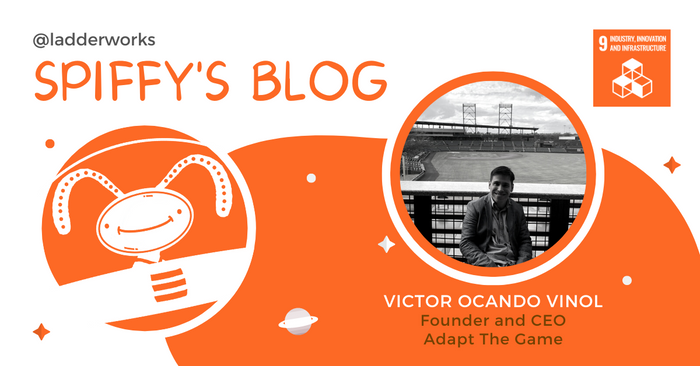Chantel: Thanks for having me, Spiffy! Indigeponics provides educational resources for communities to grow their own food using sustainable growing systems, like hydroponic systems. In the past, we had a demonstrational greenhouse that encouraged communities to interact with plants in a unique space that combines science, technology, and culture from an indigenous perspective. Currently, we provide free resources for communities about the basics of hydroponics, plant needs like light, nutrition, and water, and different types of hydroponic systems. Overall, our goal is to continue help others grow tasty food that is easily accessible and culturally relevant to bring communities together through food and kindness.
Victor: Thanks for having me, Spiffy! 15% of the world's population have some type of disability, but only half of this amount can attend live sporting events due to accessibility barriers. My startup seeks to normalize access for fans that have been ignored, because we believe that all fans should live their passion for sports equally. Our purpose is to improve game day experience for fans with disabilities by covering all of their game day needs in one app.
Haylie: Thanks for inviting me, Spiffy! The Special Olympics is using the power of sport to build friendship, understanding, and inclusion between young people with and without intellectual disabilities. We work with schools around the world to start Unified Sports teams, which are teams made up of students with and without disabilities, who then compete together. In addition to sports, the Special Olympics also promotes programming that focuses on youth leadership and opportunities to engage the entire school population. Through these activities, social inclusion blooms and breaks down the divides. The Special Olympics believes that physical inclusion is not enough. Full inclusion in education requires a commitment to social inclusion.




